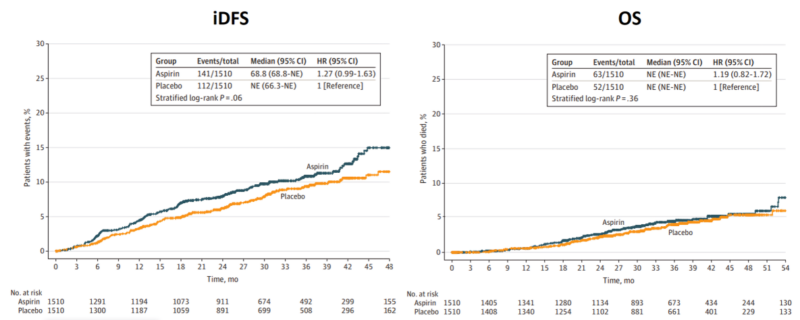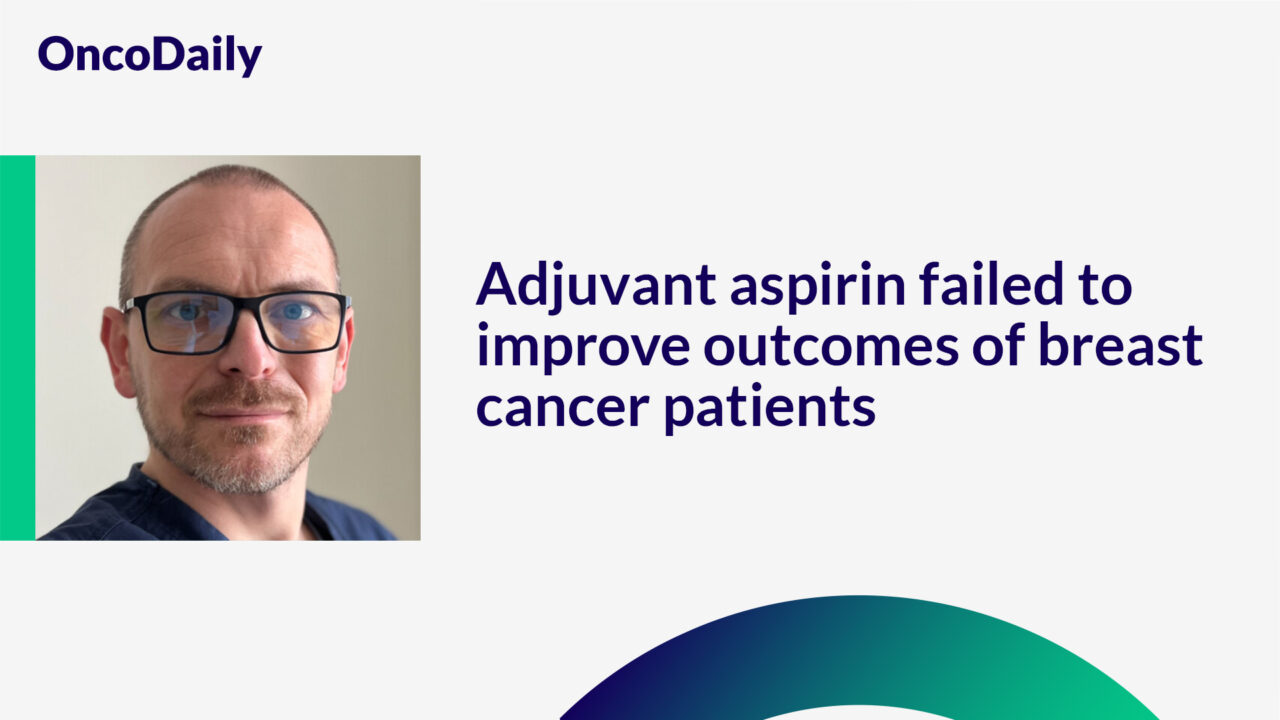Piotr Wysocki recently shared on LinkedIn:
“A large, phase III trial (Alliance A011502) enrolled 3020 patients with high-risk, HER2-negative breast cancer (BC) after completion of standard curative treatment (surgery, chemotherapy, radiotherapy).
HR+ BC patients treated with standard adjuvant endocrine therapy could have been enrolled within 10 years of diagnosis; HR-BC patients must have been enrolled within 18 months of diagnosis. Participants were randomized (1:1) to receive 300 mg of aspirin or placebo once daily for 5 years.
With a median follow-up of 33.8 months, 141 invasive-disease-free survival (iDFS) events were observed in the aspirin group and 112 in the placebo group, translating into an HR of 1.27 (95% CI, 0.99-1.63; P = .06). Most events (76.3%) represented breast cancer progression events.
More deaths were observed in the aspirin group (63) than in the placebo group (52) – HR=1.19; 95%CI 0.82-1.72
The majority of deaths (70.4%) were breast cancer-related – 46 for aspirin and 35 for placebo.
The study demonstrated good (>80%) adherence rates (>91% at 24 months), but the risk for iDFS did not differ substantially according to adherence.
The incidence of G3-4 AEs was 9.3% in the aspirin group and 10.2% in the placebo group.
The Alliance A011502 provides disappointing results demonstrating that, despite many earlier promising signals, aspirin does not improve outcomes of patients with high-risk breast cancer who underwent standard curative treatment. The worrisome slight increase in the number of deaths in aspirin-treated patients indicates the need to advise all patients currently on adjuvant aspirin to stop it at once.”

Aspirin vs Placebo as Adjuvant Therapy for Breast Cancer – The Alliance A011502 Randomized Trial
Authors: Wendy Y. Chen, Karla V. Ballman, Ann H. Partridge et al.
Source: Piotr Wysocki/LinkedIn
Piotr Wysocki leads the Clinical Oncology Department at University Hospital and the Faculty of Oncology at Jagiellonian University-Medical College in Krakow, Poland. As an advisor to the Polish Ministry of Health, he shapes the national cancer strategy.
His clinical expertise spans the systemic treatment of breast, gynecologic, and genitourinary cancers, with a focus on developing innovative metronomic chemotherapy-based therapies for advanced cancer patients who have undergone prior treatment.
Read other posts by Piotr Wysocki published on OncoDaily.


